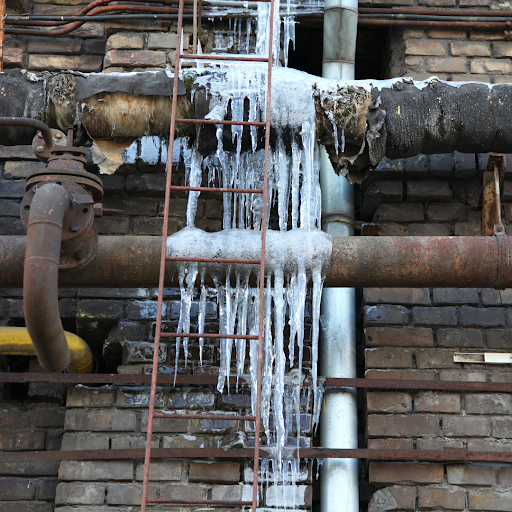Essential Tips to Avoid Frozen Pipes in Winter: Specialist Guidance
Essential Tips to Avoid Frozen Pipes in Winter: Specialist Guidance
Blog Article
Have you been looking for selective information around How to prepare your home plumbing for winter weather?

Cold weather can ruin your pipes, particularly by freezing pipes. Here's just how to stop it from taking place and what to do if it does.
Introduction
As temperatures drop, the risk of icy pipelines increases, possibly causing costly repairs and water damages. Understanding just how to prevent icy pipes is critical for home owners in cool climates.
Understanding Icy Pipes
What creates pipes to freeze?
Pipelines freeze when revealed to temperatures listed below 32 ° F (0 ° C) for prolonged periods. As water inside the pipelines freezes, it increases, taxing the pipe wall surfaces and potentially triggering them to burst.
Dangers and damages
Icy pipes can cause water system disruptions, residential property damage, and costly fixings. Ruptured pipelines can flood homes and cause substantial architectural damages.
Indicators of Frozen Piping
Determining icy pipelines early can stop them from rupturing.
How to recognize icy pipelines
Try to find reduced water circulation from faucets, uncommon smells or sounds from pipes, and visible frost on revealed pipes.
Prevention Tips
Insulating prone pipes
Wrap pipes in insulation sleeves or use heat tape to secure them from freezing temperature levels. Focus on pipelines in unheated or exterior areas of the home.
Heating strategies
Maintain indoor areas appropriately heated up, especially areas with plumbing. Open closet doors to enable warm air to flow around pipelines under sinks.
Safeguarding Outside Pipes
Garden hose pipes and outdoor faucets
Detach and drain pipes yard hose pipes prior to winter. Set up frost-proof spigots or cover outside taps with protected caps.
What to Do If Your Pipelines Freeze
Immediate activities to take
If you suspect icy pipes, maintain faucets open up to soothe pressure as the ice thaws. Utilize a hairdryer or towels soaked in hot water to thaw pipelines slowly.
Long-Term Solutions
Structural changes
Think about rerouting pipelines away from exterior walls or unheated locations. Add additional insulation to attic rooms, cellars, and crawl spaces.
Updating insulation
Purchase high-grade insulation for pipelines, attics, and wall surfaces. Correct insulation helps preserve consistent temperatures and decreases the risk of icy pipelines.
Conclusion
Avoiding frozen pipelines requires proactive actions and quick actions. By recognizing the causes, indicators, and safety nets, house owners can safeguard their plumbing throughout winter.
Helpful Tips to Prevent Frozen Pipes this Winter
UNDERSTANDING THE BASICS: WHY PIPES FREEZE AND WHY IT’S A PROBLEM
Water freezing inside pipes is common during the winter months, but understanding why pipes freeze, and the potential problems it can cause is crucial in preventing such incidents. This section will delve into the basics of why pipes freeze and the associated problems that may arise.
THE SCIENCE BEHIND FROZEN PIPES
When water reaches freezing temperatures, it undergoes a physical transformation and solidifies into ice. This expansion of water as it freezes is the primary reason pipes can burst. As the water inside the pipe freezes, it expands, creating immense pressure on the walls. If the pressure becomes too great, the pipe can crack or rupture, leading to leaks and water damage.
FACTORS THAT CONTRIBUTE TO PIPE FREEZING
Low Temperatures: Extremely cold weather, especially below freezing, increases the risk of pipes freezing. Uninsulated or Poorly Insulated Pipes: Pipes located in unheated areas, such as basements, crawl spaces, or attics, are more prone to freezing. Insufficient insulation or lack of insulation altogether exacerbates the problem. Exterior Wall Exposure: Pipes running along exterior walls are susceptible to freezing as they encounter colder temperatures outside. Lack of Heating or Temperature Regulation: Inadequate heating or inconsistent temperature control in your home can contribute to frozen pipes. PROBLEMS CAUSED BY FROZEN PIPES
- Pipe Bursting: As mentioned earlier, the expansion of water as it freezes can cause pipes to burst, resulting in significant water damage.
- Water Damage: When pipes burst, it can lead to flooding and water damage to your property, including walls, ceilings, flooring, and personal belongings.
- Structural Damage: Prolonged exposure to water from burst pipes can compromise the structural integrity of your home, leading to costly repairs.
- Mold and Mildew Growth: Excess moisture from water damage can create a favorable environment for mold and mildew growth, posing health risks to occupants.
- Disrupted Water Supply: Frozen pipes can also result in a complete or partial loss of water supply until the issue is resolved.
WHY CERTAIN PIPES ARE MORE PRONE TO FREEZING
- Location: Pipes located in unheated or poorly insulated areas, such as basements, crawl spaces, attics, or exterior walls, are at higher risk of freezing.
- Exterior Pipes: Outdoor pipes, such as those used for irrigation or exposed plumbing, are particularly vulnerable to freezing as they are directly exposed to the elements.
- Supply Lines: Pipes that carry water from the main water supply into your home, including the main water line, are critical to protect as freezing in these lines can affect your entire plumbing system.
- Underground Pipes: Pipes buried underground, such as those connected to sprinkler systems or outdoor faucets, can be susceptible to freezing if not properly insulated.
https://busybusy.com/blog/helpful-tips-to-prevent-frozen-pipes-this-winter/

Do you appreciate more info about How to Prevent Your Pipes From Freezing? Create feedback further down. We will be happy to listen to your opinions about this write-up. We hope to see you back again in the near future. In case you enjoyed our post plz don't forget to pass it around. Thanks a bunch for being here. Don't forget to come visit our website back soon.
Schedule Appointment Now Report this page